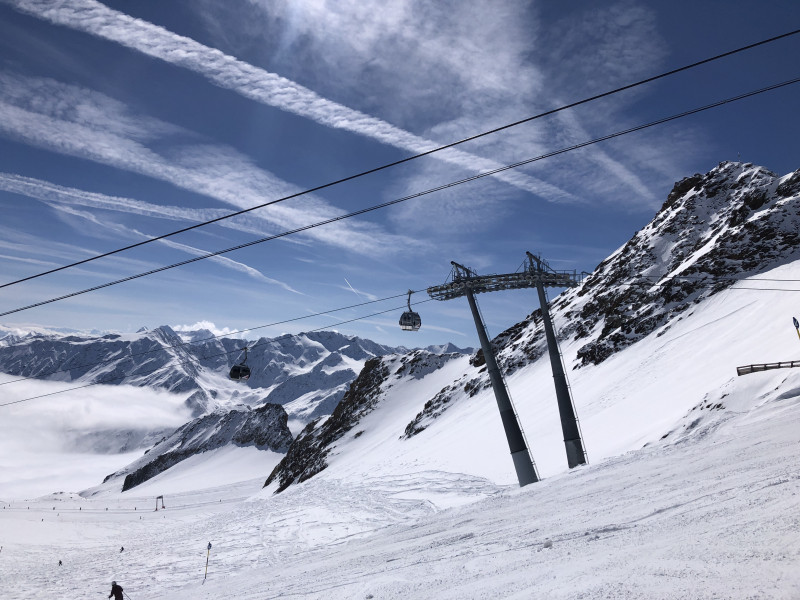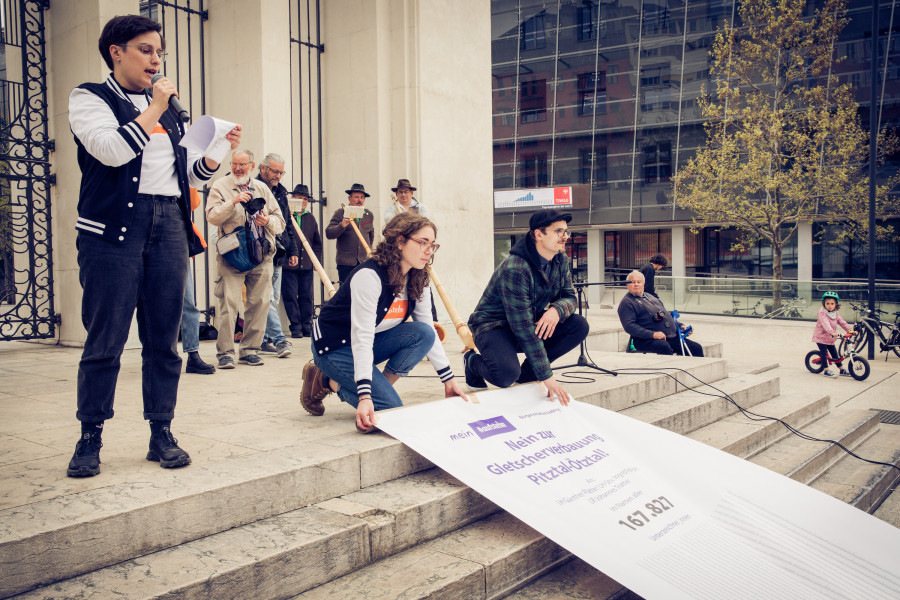Swinging on skis from the Ötztal to the Pitztal? This idea has been around for a long time. Connecting the ski areas of Sölden's glaciers to the Pitztal Glacier has been under discussion for years, but has been on hold for quite some time. This is because the project is controversial - both ecologically and economically. Last week, a citizens' initiative handed over more than 168,000 signatures to the state government against the merger of the glacier ski areas. In the Tyrolean state parliament, there is now even talk of a five-year ban on any ski area expansions.
What is the project about?

The major project, now known as the "Tyrolean Glacier Marriage", is about connecting the Ötztal and Pitztal valleys and the associated ski area expansion. Involved in the merger would be the Ötztal ski resort of Sölden and the Pitztal glacier ski area.
Three new gondola lifts and a joint ropeway center would be built for the connection, and around 158 acres of additional slope area would be developed. This would require construction on three, previously untouched glaciers.
Environmentalists are particularly critical of the massive encroachment on the high alpine landscape and the associated destruction that would be caused by 80-meter-high cable car pillars, reservoirs and artificially leveled glacier forelands. But the economic viability of the large-scale project is also in question.
The Pitztal ski area, which is significantly smaller than Sölden, would probably benefit the most from this expansion. However, the Pitztaler Bergbahnen would also have to bear the bulk of the project costs. In Sölden, on the other hand, they are speculating on being able to expand their own range of slopes without having to make high investments themselves.
Glacier marriage on the brink of cancellation
The topic of ski area mergers is not new. For more than 10 years now, the possible connection of the Pitztal and Ötztal glaciers has been under discussion. Over the years, more than 40 expert reports have been prepared for this purpose. But the project has been on ice for years. The oral environmental impact assessment (EIA for short) was supposed to take place as early as the beginning of 2020, but was postponed. Currently, it is only suspended, but not yet officially completed. This is because some documents no longer correspond to the current status.
Walter Tschon, Tyrol's environmental attorney, however, does not believe that the merger of the Pitztal and Ötztal valleys will actually be realized. He considers such connections to be no longer sustainable.
While Sölden officials are still convinced of the project's viability, the neighboring valley is more hesitant. During the Covid pandemic, the Pitztaler mountain railroads had asked for another postponement. Should the Pitztal valley decide against the connection, the project would have fallen through for good.
168.000 signatures against the project

Voices against the project are growing louder among the population. More than 168,000 signatures were handed over to the Tyrolean government last Friday, April 22, 2022 in Innsbruck on a roll of paper 18 meters long. The petition "No to the Pitztal-Ötztal glacier development" was launched by the Feldring citizens' initiative, which is led by Gerd Estermann. Around 300 participants gathered for the protest march before the handover.
No more ski area expansions in Tyrol for the time being?
In May, the Tyrolean parliament will also deal with the issue of ski area mergers. Negotiations will be held on a motion from the opposition List Fritz. It is calling for a five-year moratorium and thus a temporary halt to all expansions and mergers of ski areas in Tyrol. In addition, it is seeking a rewrite of the Tyrolean cable car and ski area program as well as a "definition of fixed final expansion limits and absolute glacier protection."
Such a "pause for reflection on lifts" already existed in Tyrol at the beginning of the 1990s under ÖVP provincial governor Wendelin Weingartner. The pause lasted three years at that time. However, afterwards there was more construction than ever before.
Whether the new moratorium will actually take place, however, is questionable. According to Ingrid Felipe (Green Party), deputy governor in Tyrol, it would not be legally possible to enforce such a ban. Instead, she points out that fewer ski projects have been approved in recent years anyway.
The five-year compulsory pause would not only affect the project in Pitztal and Ötztal. Extensions are also being planned in other Tyrolean ski areas for the next few years. These include the connection of Sillian and Sexten, Spieljoch and Hochzillertal, as well as Nauders and Schöneben-Haideralm.


